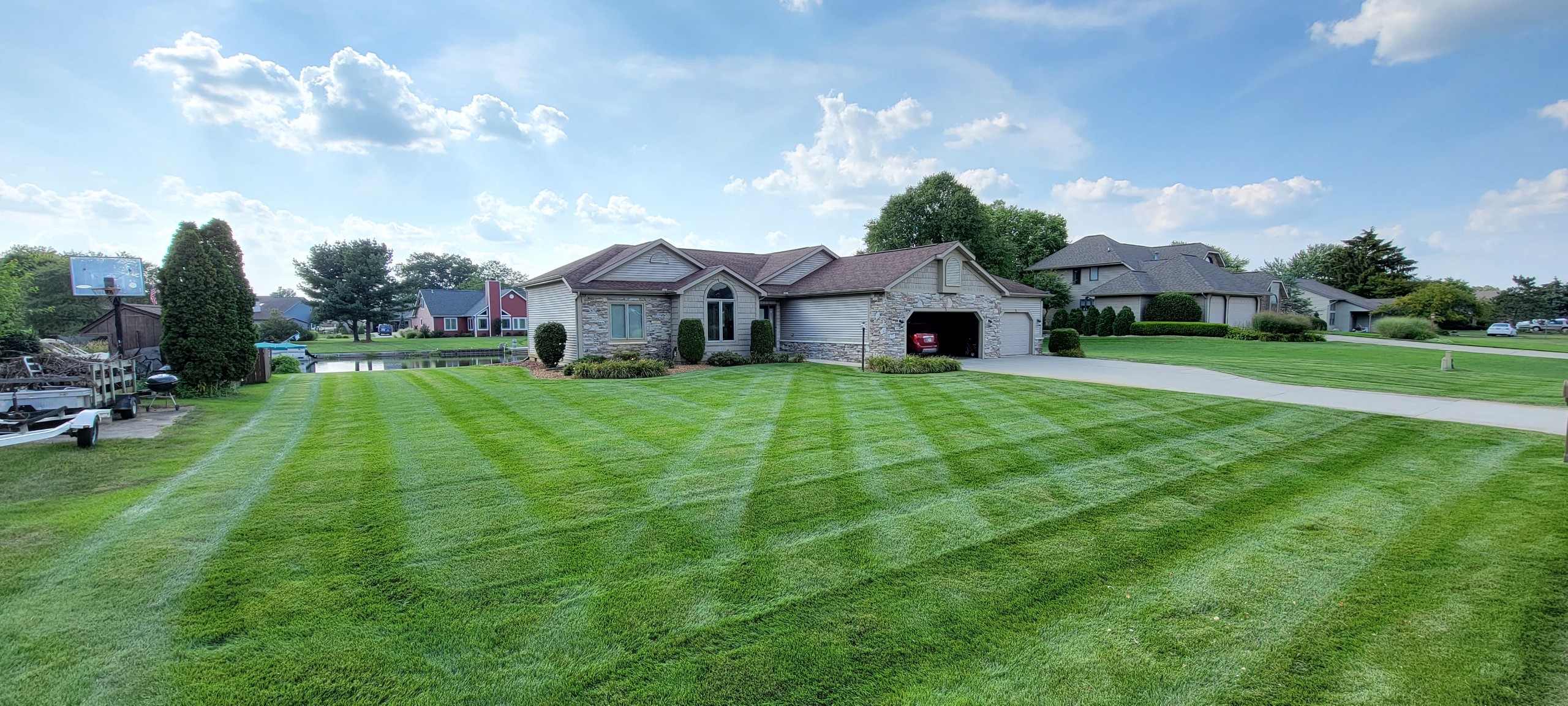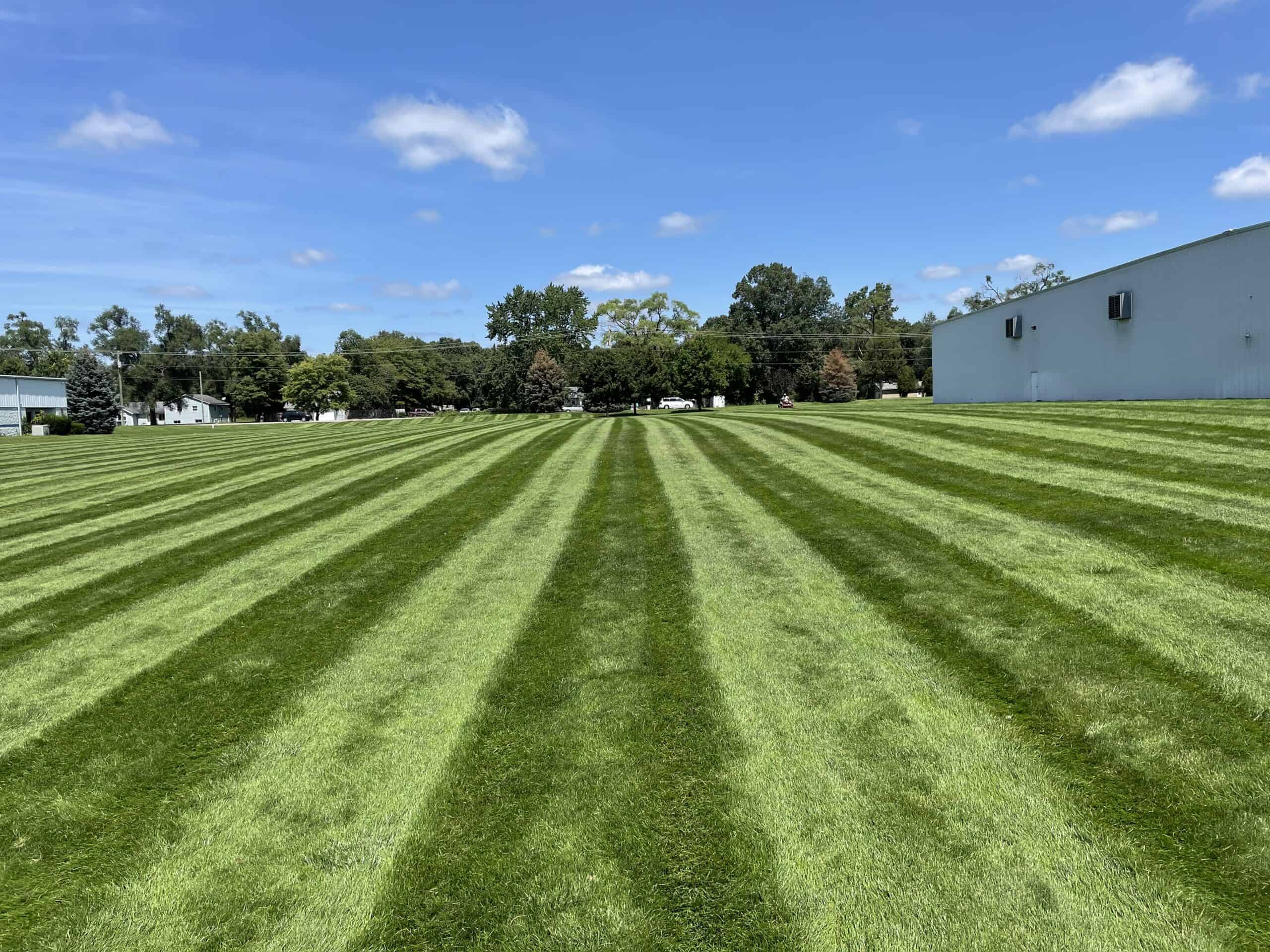The time for snow isn't over yet in Indiana, but since February is over, we're taking a cue from the third month and marching forward toward the Spring! Once the snow melts, it will be time to tend to what's beneath it - your lawn! We've already discussed the importance of cleaning up winter's mess, but once we finish, it's time to get back to the regular lawn maintenance tasks! We don't doubt you're familiar with the concept of a lawn mower, but as English poet and satirist Alexander Pope once said, "a little knowledge is a dangerous thing." So today, the Beavers are doing with words what we usually do with landscaping action - paying particular attention to the details!
Mowing
Lawn mowing is the most common and visible form of maintaining a lawn. So even if you're not interested in landscaping, you've probably mowed a lawn. But just because your pushed or ridden a mower doesn't mean you know the best way to cut a lawn. Before you say, "them's fighting words," we're not saying you don't know you're way around a tractor! But different grasses have different needs. Did you know over one thousand species are growing in North America alone?
Cool Season vs. Warm Season Grasses
Before you get overwhelmed with the number of grass species, let's narrow it down. Grasses fit into the categories of the warm or cool season. The temperature in the name refers to the growth period when each is most active. We're about to get into the cool season, grasses' most active season. In general, you can cut cool-season grasses shorter than warm-season grasses. But all grass can be shorter in cool weather than warm.The Blade
So now you know that you raise or lower the blade by season, but that's not all you need to know about the most important of mower parts. Did you know that lawnmower blades need to be sharpened and replaced? A dull blade not only does a poor job; it can damage your grass and cause discoloration and loss.Edging
If there is one thing you can do to turbocharge your lawn maintenance, it's edging. For the uninitiated, edging creates a narrow trench as a border around your lawn. The edge is both attractive and functional. So why do we edge? Beyond liking bold lines, edging makes mowing more straightforward and the rest of your landscape safer from grasses creeping. When you create a small border around your lawn, it's more difficult for grass to cross it. That means you have to worry less about the grass getting into your gardens or hardscaping. So how does that make mowing easier? With a clear edge, you spend less time reviewing details you missed.Trimming
Speaking of going back for details, that is what trimming is. Though sharp tools, from a symbolic perspective, mowers are blunt tools. They do the broad strokes, but they will miss a few spots when it comes to uneven ground or little raised patches. To avoid a messy, ragged-looking lawn, you must trim. So, after we finish our initial mow, the next step in the Busy Lil Beavers lawn maintenance routine is to back over your landscape to see any spots we missed and trim them. Details matter!Blow Outs
 Everyone knows the best part of a haircut is when it ends and the barber brushes the stray hairs off your neck with that soft brush. Do some people not know that?
Blowing out your lawn is like that. It cleans up any stray grass cutting from your driveway, hardscaping, gardens, or anywhere they don't belong. Nothing ruins a good mow like stray cuttings, even if your driveway can't get itchy.
Everyone knows the best part of a haircut is when it ends and the barber brushes the stray hairs off your neck with that soft brush. Do some people not know that?
Blowing out your lawn is like that. It cleans up any stray grass cutting from your driveway, hardscaping, gardens, or anywhere they don't belong. Nothing ruins a good mow like stray cuttings, even if your driveway can't get itchy.


